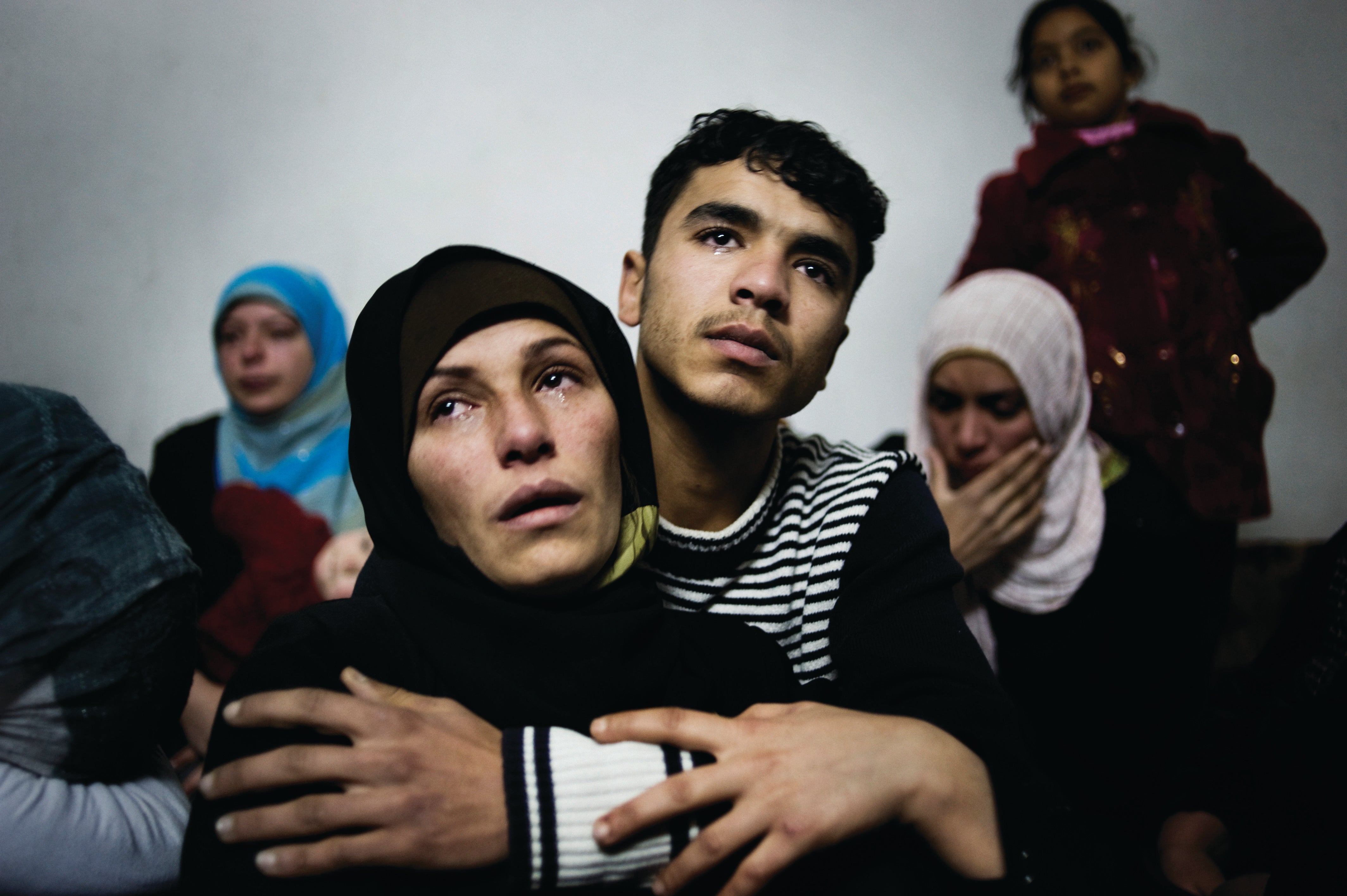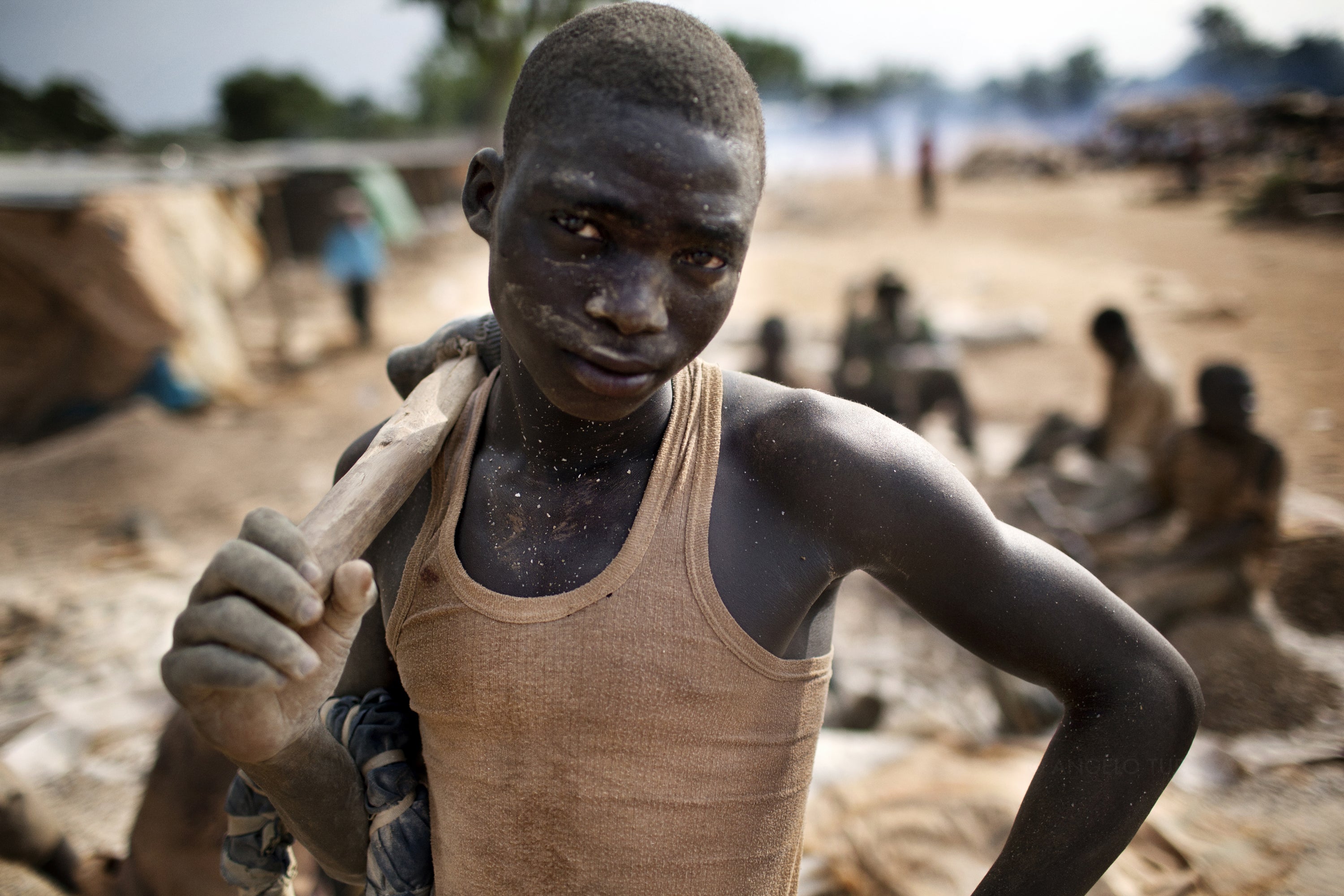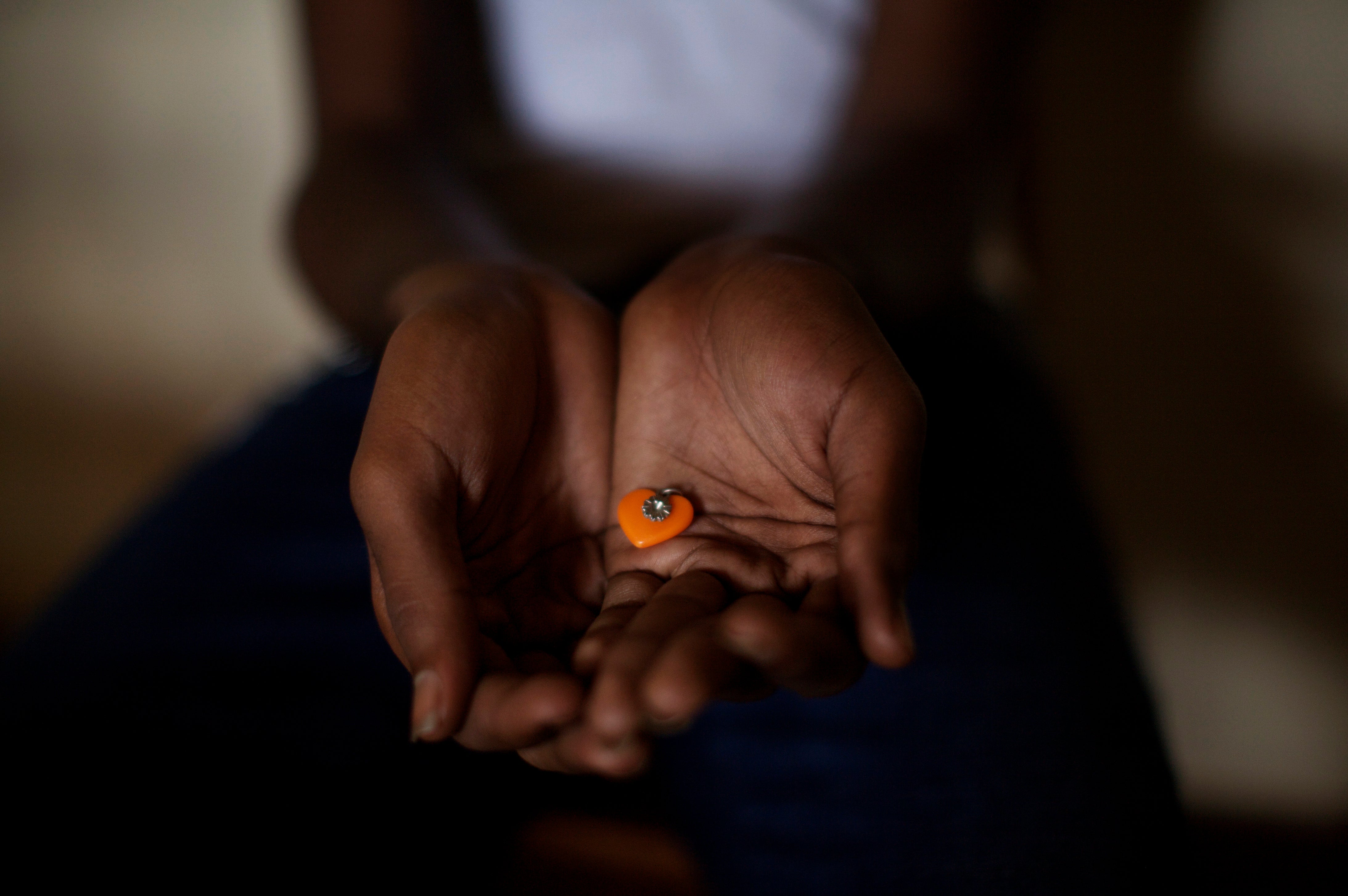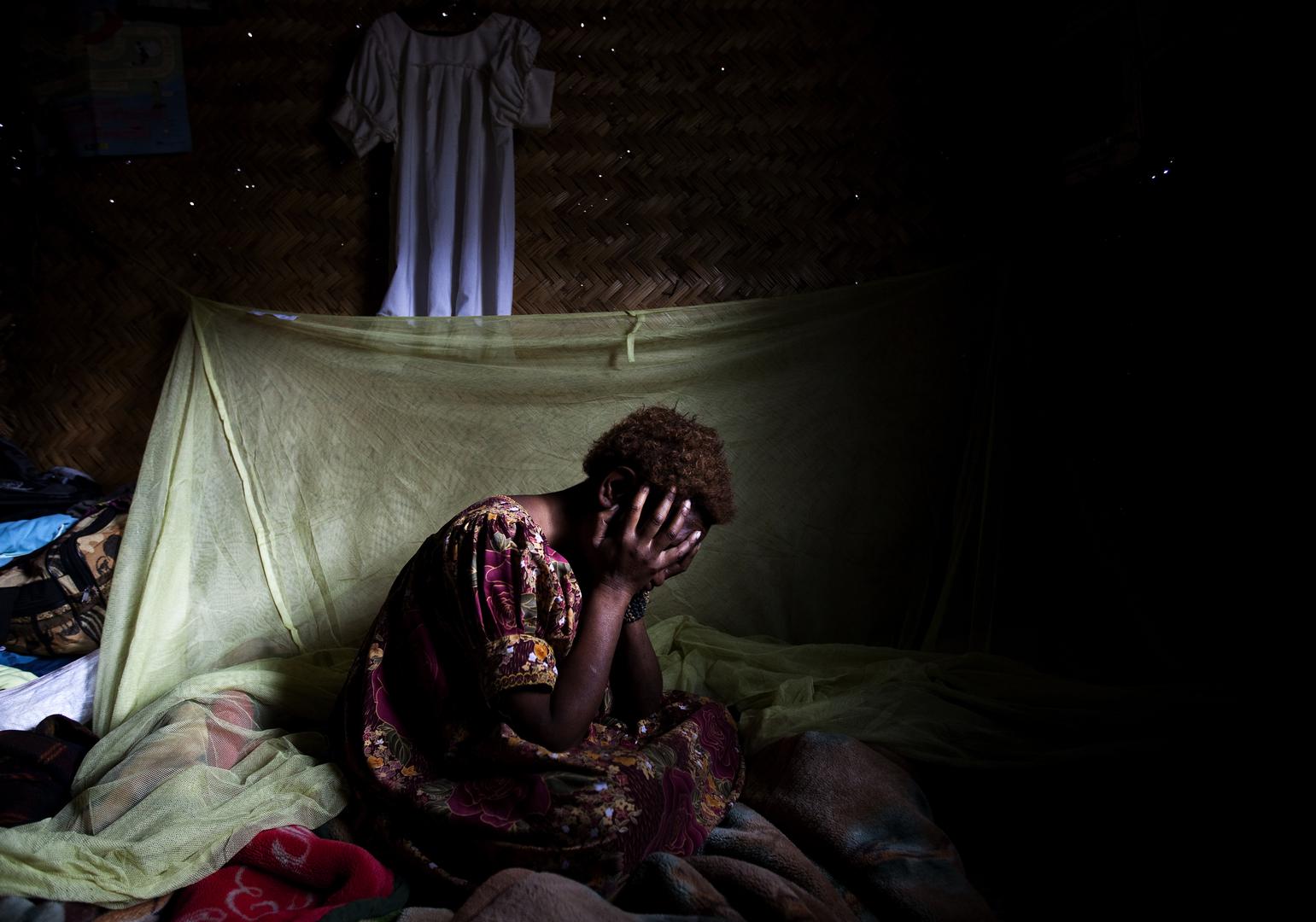Kim Jong-Un’s succession as North Korea’s supreme leader after the death of his father, Kim Jong-Il, in December 2011 had little impact on the country’s dire human rights record.
The Democratic People’s Republic of Korea (North Korea) systematically violates the rights of its population. The government has ratified four key international human rights treaties and includes rights protections in its constitution, but does not allow organized political opposition, free media, functioning civil society, or religious freedom. Arbitrary arrest, detention, lack of due process, and torture and ill-treatment of detainees remain serious and pervasive problems. North Korea also practices collective punishment for various anti-state offenses, for which it enslaves hundreds of thousands of citizens in prison camps, including children. The government periodically publicly executes citizens for stealing state property, hoarding food, and other “anti-socialist” crimes, and maintains policies that have continually subjected North Koreans to food shortages and famine.
In April, the International Coalition to Stop Crimes against Humanity in North Korea (ICNK), which includes Human Rights Watch, filed a comprehensive submission on political prison camps to 11 United Nations special procedures operating under the mandate of the UN Human Rights Council (HRC), and called for the creation of a UN commission of inquiry to investigate crimes against humanity in North Korea.
On November 2, the UN special rapporteur on the situation of human rights in the DPRK recommended that the UN General Assembly and the international community should consider setting up a “more detailed mechanism of inquiry” into the egregious human rights abuses in the country.
Food Shortages and Famine
North Korea continues to face serious food insecurity in 2012, following a major famine in 2011. In November 2012, the World Food Program (WFP) and Food and Agriculture Organization (FAO) estimated that 2.8 million vulnerable people, equal to slightly more than 10 percent of all North Koreans, face under-nutrition and a lack of vital protein and fat in their daily diet. The troubling food situation is the result of several factors, including a dry spell that heavily impacted soybean production in the first half of 2012; economic mismanagement; and the government’s blatantly discriminatory food policies that favor the military and government officials.
Torture and Inhumane Treatment
Testimony from North Korean refugees that Human Rights Watch gathered in 2012 indicates that individuals arrested on criminal or political charges often face torture by officials aiming to elicit confessions, extract bribes and information, and enforce obedience. Common forms of torture include sleep deprivation, beatings with iron rods or sticks, kicking and slapping, and enforced sitting or standing for hours. Detainees are subject to so-called “pigeon torture,” in which they are forced to cross their arms behind their back, are handcuffed, hung in the air tied to a pole, and beaten with a club. Guards also rape female detainees.
Executions
North Korea’s criminal code stipulates that the death penalty can be applied only for a small set of crimes, but these include vaguely defined offenses such as “crimes against the state” and “crimes against the people” that can be, and are, applied broadly. A December 2007 amendment to the penal code extended the death penalty to many more crimes, including non-violent offenses such as fraud and smuggling. Testimony that Human Rights Watch collected in 2012 revealed that authorities executed persons for “crimes” that included stealing metal wire from a factory, taking plate glass from a hanging photo of Kim Jong-Il, and guiding people to the North Korea-China border with intent to flee the country.
Political Prisoner Camps
Information provided by escapees who have fled North Korea in the past two years has again shown that persons accused of political offenses are usually sent to brutal forced labor camps, known as gwalliso, operated by the National Security Agency.
The government practices collective punishment, sending to forced labor camps not only the offender but also their parents, spouse, children, and even grandchildren. These camps are notorious for horrific living conditions and abuse, including severe food shortages, little or no medical care, lack of proper housing and clothes, continuous mistreatment and torture by guards, and executions. Forced labor at the gwalliso often involves difficult physical labor such as mining, logging, and agricultural work, all done with rudimentary tools in dangerous and harsh conditions. Death rates in these camps are reportedly extremely high.
North Korea has never acknowledged that these camps exist, but United States and South Korean officials estimate some 200,000 people may be imprisoned in them, including in camp No. 14 in Kaechun, No. 15 in Yodok, No. 16 in Hwasung, No. 22 in Hoeryung, and No. 25 in Chungjin.
Refugees and Asylum Seekers
North Korea criminalizes leaving the country without state permission. Following the death of leader Kim Jong-Il, the new government decreed a shoot-on-sight order to border guards to stop illegal crossing at the northern border into China. Increased border security in both North Korea and China significantly reduced the numbers of North Koreas reaching Thailand, and ultimately, South Korea.
Those who leave face harsh punishment upon repatriation. Interrogation, torture, and punishments depend on North Korean authorities’ assessments of what the returnee did while in China. Those suspected of simple commerce or other money-making schemes are usually sent to work in forced labor brigades (known as ro-dong-dan-ryeon-dae, literally labor training centers) or jip-kyul-so (collection centers), low-level criminal penitentiaries where forced labor is required.
Others suspected of religious or political activities, especially including contact with South Koreans, are given lengthier terms in horrendous detention facilities known as kyo-hwa-so (correctional, reeducation centers) where forced labor is combined with chronic food and medicine shortages, harsh working conditions, and mistreatment by guards.
Beijing categorically labels North Koreans in China “illegal” economic migrants and routinely repatriates them, despite its obligation to offer protection to refugees under customary international law and the Refugee Convention of 1951 and its 1967 protocol, to which China is a state party. Former North Korean security officials who have defected told Human Rights Watch that North Koreans handed back by China face interrogation, torture, and referral to political prisoner or forced labor camps. In a high profile case, China forced back at least 30 North Koreans in February and March 2012, defying a formal request from South Korean President Lee Myung-Bak to desist from doing so, and despite protests in front of the Chinese Embassy in Seoul.
North Korean women fleeing their country are frequently trafficked in forced de facto marriages with Chinese men. Even if they have lived there for years, these women are not entitled to legal residence and face possible arrest and repatriation. Many children of such unrecognized marriages lack legal identity or access to elementary education because their parents fear that by attempting to register such the child, the Chinese authorities will identify the mother as an undocumented North Korean migrant, and arrest and forcibly repatriate her.
Government-Controlled Judiciary
North Korea’s judiciary is neither transparent nor independent. The government appoints and tightly controls judges, prosecutors, lawyers, court clerks, and even jury members. In some cases designated as political crimes, suspects are not even sent through a nominal judicial process; after interrogation they are either executed or sent to a forced labor camp, often with their entire families.
Labor Rights
North Korea is one of the few nations in the world that is not a member of the International Labour Organization (ILO). The ruling Korean Workers’ Party firmly controls the only authorized trade union organization, the General Federation of Trade Unions of Korea. South Korean companies employ over 50,000 North Korean workers in the Kaesong Industrial Complex (KIC), close to the border between North and South Korea, where the law governing working conditions falls far short of international standards on freedom of association, the right to collective bargaining, and protection from gender discrimination and sexual harassment.
Freedom of Association, Information, and Movement
The government uses fear—generated mainly by threats of forced labor and public executions—to prevent dissent, and imposes harsh restrictions on freedom of information, association, assembly, and travel.
North Korea operates a vast network of informants who monitor and report to the authorities fellow citizens they suspect of criminal or subversive behavior. All media and publications are state controlled, and unauthorized access to non-state radio or TV broadcasts is severely punished. North Koreans found with unauthorized TV programs, such as South Korean drama and entertainment shows, are punished. The government periodically investigates the “political background” of its citizens to assess their loyalty to the ruling party, and forces Pyongyang residents who fail such assessments to leave the capital.
Key International Actors
The North Korean government continues to refuse to recognize the mandate of the UN special rapporteur on the situation of human rights in the DPRK, or cooperate with him.
In March, the HRC adopted a resolution against North Korea for the fifth year in a row condemning Pyongyang for its abysmal, systematic human rights violations. For the first time the resolution passed by consensus, marking a breakthrough in international recognition of the gravity of North Korea’s human rights abuses. This followed condemnation by the UN General Assembly for the seventh straight year in a December 19, 2011 resolution that demanded North Korea halt its “systematic, widespread and grave violations of human rights” and reiterated UN member states’ concerns about the country’s “all-pervasive and severe restrictions on the freedoms of thought, conscience, religion, opinion and expression, peaceful assembly and association.”
Both resolutions condemned North Korea’s failure to state whether it accepted any of the 167 recommendations that it took under advisement from a HRC’s Universal Periodic Review (UPR) session of its record in December 2009.
The six-party talks on denuclearizing the Korean peninsula—involving North and South Korea, China, Japan, Russia, and the US—remained moribund during the year. A potential breakthrough deal between the US and North Korea in February to provide substantial US food assistance in exchange for an end to uranium enrichment and missile testing by North Korea, and a return of International Atomic Energy Agency (IAEA) inspectors, fell apart when North Korea insisted on attempting to launch a rocket carrying a satellite to commemorate the 100th anniversary of the birth of North Korean founder Kim Il-Sung.
Japan continued to demand the return of 17 Japanese citizens that North Korea abducted in the 1970s and 1980s for, among other things, training North Korean spies. It returned five to Japan, but claimed eight had died and that the other four had never entered North Korea. Some Japanese civil society groups insist the number of abductees is much higher. South Korea’s government continued to increase its attention and efforts to demand return of hundreds of its citizens it claimed were abducted by North Korean government agents.





